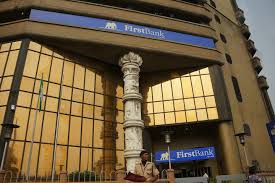…posts 73.7 billion profit after tax
FBN Holding PLC shelled in gross earnings of ₦627.0 billion in full-year 2019, showing uptick of 6.7 per cent in comparison to ₦587.4 billion attained in 2018, but failed again to maintain pace with competition on the profitability score.
Profit after tax stood at ₦73.7 billion, indicating 26.5 per cent more than ₦58.2 billion recorded in 2018, leaving net-interest income at ₦290.2 billion, up by 1.7 per cent in contrast with ₦285.3 billion in 2018.
In percent age terms, the bank’s 11.8 per cent return on earnings pale into low realm in comparison with its fellow first tier banks, especially Zenith Bank and Guaranty Trust Bank. While Zenith Bank returned a post-tax profit of N208.8 billion on gross earnings of N662.3 billion, representing 31 per cent return, in the corresponding period; GTBank returned N196.8 billion on 434.7 billion, representing more than 45 per cent at thesame period.
This means that the bank, which trouble dates bank to 2008, when its exposure to marginal, oil industry loans resulted in huge non-performing loans portfolio, still needs a lot to do to improve on efficiencies.
In the past decade, the bank has had three managing directors s it keeps search for the strategic fit that would efficiency ratios, provide the vision that strategy that would bump off cycle of higher-flyer performance.
According to the result presented to the Nigerian Stock Exchange (NSE), FBN Holding ‘s Customer deposits increased by 15.3 per cent to ₦4.0 trillion compared with ₦3.5 trillion in 2018.
The company’s non-interest income appreciated by 20.6 per cent to ₦159.2 billion against ₦132.0 billion in 2018.
Further analysis of the result indicated that impairment charges was down by 41.5 per cent to ₦51.1 billion against ₦87.5 billion in the previous period.
Its total assets stood at ₦6.2 trillion, representing an increase of 11.4 per cent on the ₦5.6 trillion recorded in 2018.
Non Performing Loan (NPL) ratio returned to single digit at 9.9 per cent against 24.7 per cent achieved in 2018.
Meanwhile, FBN has proposed a dividend of 38k to its shareholders ahead of its Annual General Meeting (AGM) slated for April 27.
This obviously positive trajectory which needs to be sustained, while dressing its inherent deficiencies in order to take it back to the top.
Commenting on the results, Mr Urum Kalu Eke, Group Managing Director described 2019 as a positive year.
“We are happy to close the 2019 financial year on positive notes across a number of key metrics, giving the Group a clean-slate to accelerate its growth plan as we conclude the 3-year Strategic Planning Cycle which ran from 2017-2019 and commence a new cycle.
“In line with our promise to the market, FBN Holdings closed the year with a 30.9 per cent y-o-y increase in profit before tax and delivered its target of a single digit NPL which closed at less than 10 per cent.
“Similarly, we successfully overhauled our risk management architecture, strengthened our processes by leveraging technology and institutionalising a strong credit culture across the lending entities,” he said.
According to him, these deliberate steps have seen the NPL ratio of the company’s vintage book remain below 1 per cent.
“In the same vein, we have made significant improvement in our revenue generation capacity with non-interest income benefiting from our market leadership in electronic banking channels.
“It is also noteworthy to highlight that our investments aimed at improving operational efficiencies and enhancing revenue accretion have resulted in higher cost-to-income ratio.
“The benefits of these investments will be realised in subsequent periods.
“The new cycle is focused on strengthening and positioning the various businesses across the Group for sustainable growth over the long-term.
“As a Group, we are committed to transforming our financial performance to tangible results for the benefit of all stakeholders especially our shareholders through enhanced returns and dividend payment.
“As a testament of the resolution of the legacy issues and an indication of the future, FirstBank re-commenced dividend upstream to the holding company.”














